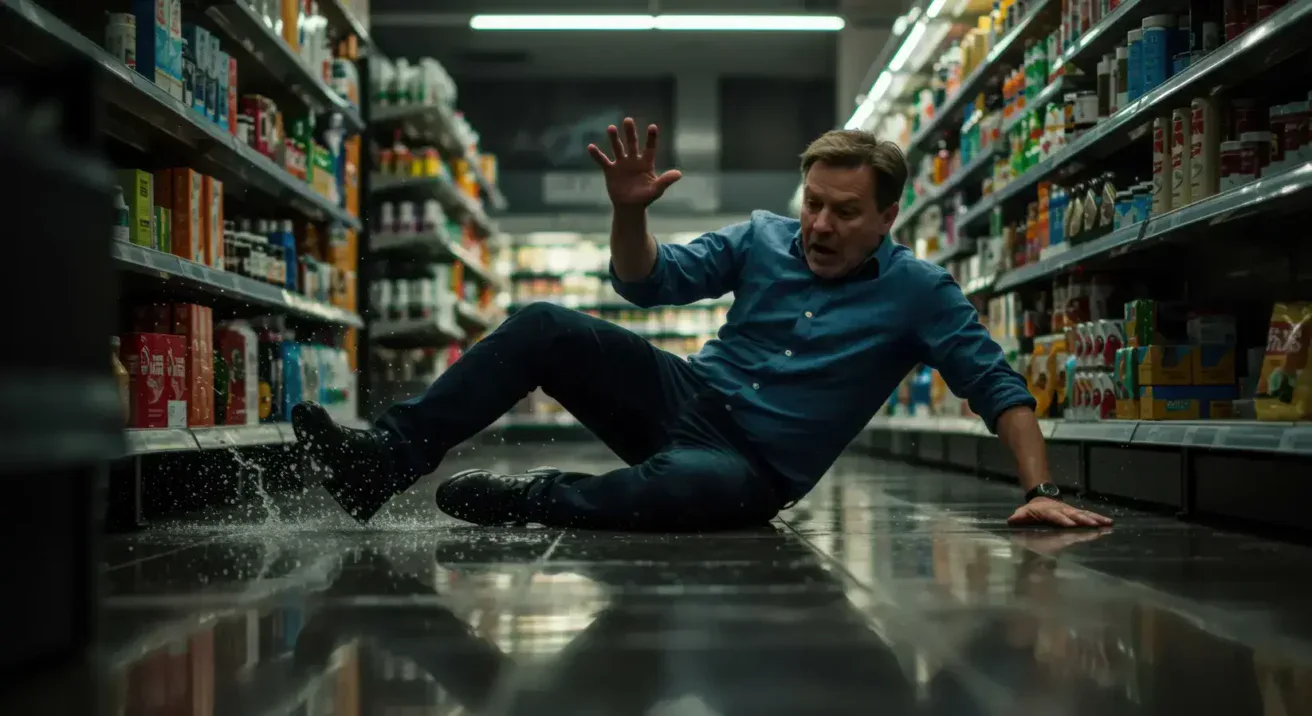What Evidence is Crucial in a Premises Liability Case?

When an accident occurs on someone else’s property, determining responsibility can be complex. Premises liability law deals with situations in which a property owner may be held responsible for injuries that occur on their premises due to unsafe conditions. For an injured party to have a claim, gathering and presenting the right evidence is crucial. Which is why a premises liability attorney will be key in helping you understand your rights and legal options.
What Is Premises Liability?
Premises liability holds property owners or occupiers responsible when someone is injured on their property due to unsafe or hazardous conditions.
Common Types of Premises Liability Cases
- Slip and fall accidents (e.g., wet floors, uneven or icy sidewalks)
- Inadequate maintenance (e.g., broken stairs, loose railings)
- Falling objects
- Dog bites
- Swimming pool accidents
- Elevator or escalator malfunctions
- Accidents at stores, hotels, apartment complexes, or public places
Who Can Be Held Liable for a Premises Liability Claim?
Property Owners
Homeowners and business owners are responsible if they fail to maintain a safe environment. They have a legal duty to repair hazards or warn visitors of dangers they know, or should know about.
Tenants or Renters
If a business or individual rents the property and controls the area where the injury occurred, they may be liable instead of (or along with) the owner.
Property Managers or Maintenance Companies
If the property is managed by a third-party company, and they are in charge of upkeep and repairs, they may be held liable for neglecting safety.
Landlords
Landlords can be held liable for injuries in common areas like stairwells or lobbies, or for failing to make repairs they’re responsible for.
Business Operators
If a business is operating on the premises like a store, gas station, restaurant, or event, they may be liable if their negligence created a dangerous condition.
Government Entities
When an injury happens on public property (parks, sidewalks, government buildings), cities, counties, or state agencies might be liable. These cases often have strict rules and shorter filing deadlines.
Types of Evidence Used in a Premises Liability Case
In a premises liability case, various types of evidence can be used to establish fault and support your claim. Here are the most common types of evidence.
Incident Reports
An incident report is filed by the property owner, manager, or employee at the time the accident happens, with details on what occurred.
Photographs & Videos
Many businesses and residential properties use security cameras, which may capture the accident as it happens. Surveillance video can act as an impartial witness, showing how the accident occurred and the conditions of the property. Photos provide clear images of the environment exactly as it was when the incident occurred. Important photos for the case could include: wet floors, broken stairs, poorly lit areas, as well as any visible injury and damage to clothing or personal items.
Eyewitness Testimony
Eyewitness testimony can play a crucial role in a premises liability case by providing firsthand accounts of the incident, the conditions that led to it, and the property owner’s actions. Their testimony can help support claims of physical and emotional distress as well as credibility and offering more context about the accident.
Maintenance & Inspection Records
In a premises liability case, maintenance and inspection records are important pieces of evidence that can help prove whether a property owner fulfilled their legal duty to keep the premises safe. These records are helpful because they show:
- Whether regular inspections were performed
- If the owner had a routine system in place to identify hazards
- How long a hazard existed
- If the property had repeated complaints related to the hazard
- Efforts, or lack thereof to fix the hazard
- History of neglect or ongoing problems
911 Calls & Emergency Response Records
911 calls and emergency response documentation from paramedics and police can be valuable evidence to establish the timeline of events, severity of the incident, and the conduct of those involved.
Medical Records
Medical records provide clear evidence of the nature and severity of the injuries, the treatments received, and the ongoing impact on the claimant’s life. They help show levels of pain, physical limitations, and the need for future medical care which are all key factors in determining fair and appropriate compensation.
Defendant’s Statements
The defendant’s statements at the time of the accident can be a critical source of evidence especially, if they reveal knowledge of a hazard, admissions of fault, or contradictions to their original version of events. Examples of this could be, “We’ve been meaning to fix that,” “I forgot to put up the warning sign,” “I didn’t realize someone could get hurt from that,” etc.
Tips for Preserving Evidence
- Document the scene as soon as you can and get photos of the accident from different angles. Doing so ensures the property owner cannot fix the defect and claim it did not exist.
- Keep the clothing and shoes worn at the time of the accident because they may show substances that are important for the case.
- If anyone saw the accident, ask for their full name and contact info.
- Notify the property owner, manager, or employee right away and request a copy of the incident report.
- Write down everything you remember about the incident because recollections fade, and you want to be able to have accurate information to share that helps your case.
Consult With a postman law Premises Liability Attorney Right Away
If you have suffered a premises liability injury in Chicago, Cincinnati, Denver, or Minneapolis, Postman Law will help get you the settlement you deserve. Our personal injury attorneys will send “preservation letters,” to property owners or other parties, requiring them to retain critical evidence that might otherwise be lost or destroyed. If needed, we can collect further evidence by issuing subpoenas during the discovery process to help build a stronger case on your behalf.
We’re here to help you protect your rights, so contact us today to schedule a free consultation with one of our attorneys. Call us at 844-POSTMAN or fill out our online form.
Disclaimer: This blog post is for informational purposes only and does not constitute legal advice. For specific guidance regarding your situation, consult a licensed attorney.
FAQs
Premises liability holds property owners responsible for maintaining reasonably safe conditions on their property. If someone is injured because of a hazardous condition, the property owner may be legally liable if they knew or should have known about the danger and failed to address it or warn visitors.
Evidence establishes the property owner’s negligence and directly links it to your injuries. Without strong proof, securing a favorable settlement or verdict can be challenging.
Gathering evidence as soon as possible after the accident is very important. Hazards can be repaired, changed, or removed quickly, making it difficult to collect evidence needed for the claim.
Evidence showing the hazard existed long enough for the owner to notice and fix it helps prove negligence. This may include surveillance footage, maintenance logs, or prior complaints.
Records of previous incidents or complaints involving the same hazard can demonstrate a pattern of negligence and knowledge of the danger.
Violations of local building codes or safety regulations can strongly support a premises liability claim by showing the property failed to meet required safety standards.
While you can start gathering evidence yourself, Postman Law’s premise liability attorneys will ensure critical evidence is preserved and properly documented for your case. But if you are at the scene of the hazardous condition and are worried that the company may try to cover up its existence, you should not wait to talk to an attorney and start taking photos and videos immediately.
Postman Law specializes in personal injury cases, including car and truck accidents, slip-and-fall injuries, medical malpractice, product liability, wrongful death, workplace injuries, and more. Our attorneys have secured over $3 billion for more than 1.4 million clients.
We move quickly to gather evidence, thoroughly investigate your case, negotiate with insurance companies on your behalf, and represent you in court when necessary. You pay nothing up front. We only collect a fee if we secure compensation for you.
Throughout your case, we stay in close communication, answering your questions, explaining your options, and guiding you every step of the way. Contact us today to schedule a free case consultation.


